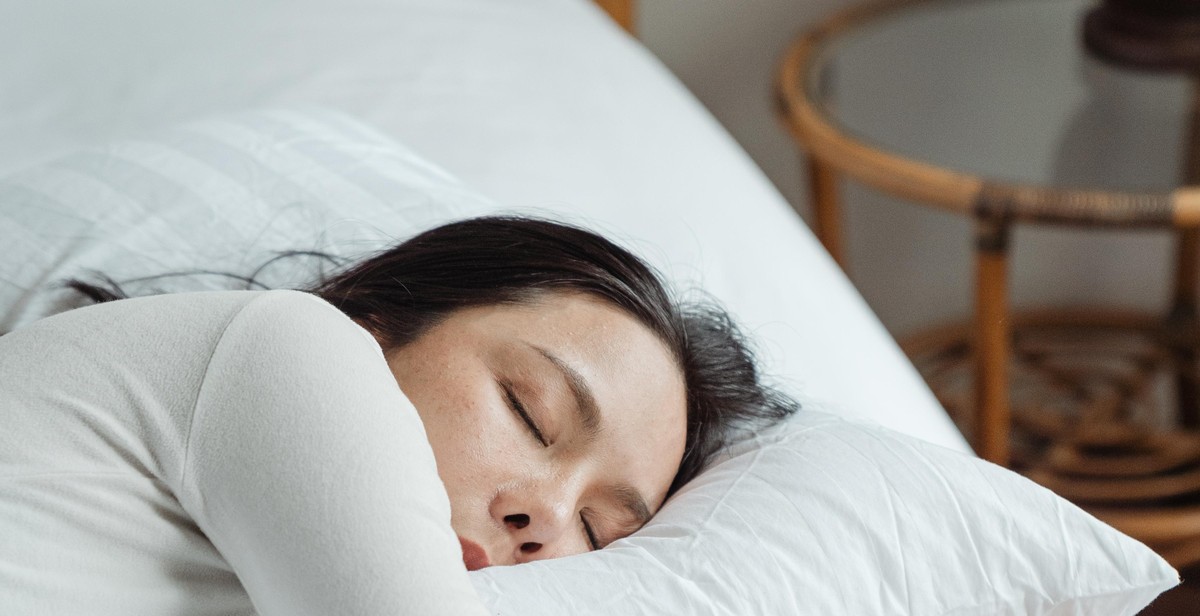How to Establish a Bedtime Routine for Better Sleep: Promoting Sweet Dreams and Quality Rest
Getting a good night’s sleep is essential for overall health and well-being. However, many people struggle with falling asleep or staying asleep throughout the night. One effective way to improve the quality of your sleep is by establishing a bedtime routine. A bedtime routine is a set of activities that you do before going to bed to help your body and mind relax and prepare for sleep.
The Benefits of a Bedtime Routine
Establishing a bedtime routine can have numerous benefits for your health and well-being. A bedtime routine can:
- Reduce stress and anxiety
- Promote relaxation
- Improve sleep quality
- Help you fall asleep faster
- Improve your overall health and well-being
How to Establish a Bedtime Routine
Establishing a bedtime routine is a personal process that depends on your preferences and lifestyle. However, some general tips that can help you establish a bedtime routine include:
- Set a consistent bedtime and wake-up time
- Avoid caffeine and alcohol before bedtime
- Avoid using electronic devices before bedtime
- Engage in relaxing activities before bedtime, such as reading or taking a warm bath
- Create a relaxing sleep environment
By following these tips and establishing a bedtime routine, you can promote sweet dreams and quality rest, leading to improved health and well-being.

Why is a Bedtime Routine Important?
Having a bedtime routine is crucial for achieving a good night’s sleep. It helps your body and mind relax and prepare for rest, allowing you to fall asleep faster and stay asleep longer. Here are some reasons why establishing a bedtime routine is important:
Improves Sleep Quality
Following a consistent bedtime routine can improve the quality of your sleep. When you go to bed at the same time every night and engage in relaxing activities before sleep, your body learns to associate these behaviors with sleep. This can help you fall asleep faster and experience deeper, more restful sleep throughout the night.
Reduces Stress and Anxiety
A bedtime routine can also help reduce stress and anxiety. Engaging in calming activities before bed, such as reading or meditation, can help you unwind and let go of any worries or stressors from the day. This can help you feel more relaxed and calm, making it easier to fall asleep and stay asleep.
Helps Regulate Sleep-Wake Cycle
Establishing a bedtime routine can help regulate your sleep-wake cycle. When you go to bed and wake up at the same time every day, your body learns to anticipate sleep and wakefulness. This can help improve the quality of your sleep and make it easier to wake up feeling refreshed and alert.
Provides Time for Relaxation
A bedtime routine provides a designated time for relaxation. By setting aside time to wind down before bed, you can create a sense of calm and tranquility in your bedroom. This can help you feel more relaxed and peaceful, making it easier to fall asleep and stay asleep throughout the night.
In summary, establishing a bedtime routine is important for improving sleep quality, reducing stress and anxiety, regulating the sleep-wake cycle, and providing time for relaxation. By incorporating calming activities into your bedtime routine, you can create a peaceful and relaxing environment that promotes sweet dreams and quality rest.

How to Establish a Bedtime Routine
Establishing a consistent bedtime routine is essential for promoting sweet dreams and quality rest. Here are some tips to help you establish a bedtime routine that works for you:
Set a Consistent Bedtime
Going to bed at the same time every night helps regulate your body’s internal clock and can improve the quality of your sleep. Choose a bedtime that allows you to get enough rest and stick to it, even on weekends.
Create a Relaxing Environment
Your bedroom should be a peaceful and relaxing environment. Make sure your mattress and pillows are comfortable, and keep the room cool, dark, and quiet. Use soft lighting, scents, and relaxing sounds to create a calming atmosphere.
Unwind with a Relaxing Activity
Before bed, engage in relaxing activities that help your body and mind unwind. Reading a book, taking a warm bath, or practicing gentle yoga or stretching can help you relax and prepare for sleep.
Avoid Electronics Before Bedtime
The blue light emitted by electronic devices like smartphones, tablets, and computers can interfere with your body’s natural sleep-wake cycle. Avoid using electronics for at least an hour before bed and consider using apps that filter blue light if you must use them.
Limit Caffeine and Alcohol Intake
Consuming caffeine and alcohol in the evening can interfere with your ability to fall asleep and stay asleep. Limit your intake of these substances in the hours leading up to bedtime.
Establish a Pre-Sleep Routine
Create a pre-sleep routine that signals to your body that it’s time to wind down and prepare for sleep. This might include brushing your teeth, washing your face, and stretching or meditating. Stick to your routine every night to reinforce the association between these activities and sleep.
- Set a consistent bedtime
- Create a relaxing environment
- Unwind with a relaxing activity
- Avoid electronics before bedtime
- Limit caffeine and alcohol intake
- Establish a pre-sleep routine

Relaxing Activities to Incorporate in Your Bedtime Routine
Establishing a bedtime routine can be an effective way to promote quality rest and sweet dreams. Incorporating relaxing activities into your routine can help your body and mind unwind and prepare for a restful night’s sleep. Here are some relaxing activities to consider:
Reading a Book
Reading a book is a great way to unwind before bed. It can help you relax and escape from the stresses of the day. Choose a book that is not too stimulating or exciting, as this can make it difficult to fall asleep. Instead, opt for something calming and soothing, such as a self-help book or a novel with a peaceful storyline.
Taking a Warm Bath or Shower
Taking a warm bath or shower before bed can help to relax your muscles and ease tension. The warm water can also help to calm your mind and prepare you for a restful night’s sleep. Consider adding some soothing essential oils or bath salts to your bath to enhance the relaxation experience.
Meditation or Breathing Exercises
Meditation and breathing exercises can be powerful tools for relaxation and stress relief. Practicing meditation or breathing exercises before bed can help to calm your mind and prepare you for sleep. There are many guided meditation apps and videos available online that can help you get started.
Listening to Calming Music
Listening to calming music before bed can help to relax your mind and ease tension in your body. Choose music that is slow and soothing, such as classical music or nature sounds. Avoid music with lyrics, as this can be too stimulating and distracting.
Yoga or Gentle Stretching
Yoga and gentle stretching can be a great way to release tension in your muscles and prepare your body for sleep. Consider doing some gentle yoga poses or stretches before bed to help your body unwind and relax.
- Reading a book
- Taking a warm bath or shower
- Meditation or breathing exercises
- Listening to calming music
- Yoga or gentle stretching
Incorporating these relaxing activities into your bedtime routine can help you to unwind and prepare for a restful night’s sleep. Experiment with different activities to find what works best for you and make it a part of your nightly routine.

Additional Tips for Better Sleep
In addition to establishing a bedtime routine, there are several other things you can do to improve the quality of your sleep:
Exercise regularly
Regular exercise can help you fall asleep faster and stay asleep longer. However, it’s important to avoid exercising too close to bedtime, as it can increase your heart rate and make it harder to fall asleep. Aim to finish your workout at least 2-3 hours before bedtime.
Maintain a healthy diet
Eating a healthy, balanced diet can also improve the quality of your sleep. Avoid consuming large meals, caffeine, and alcohol before bedtime, as they can all interfere with your ability to fall asleep and stay asleep.
Keep your bedroom cool and dark
Your sleeping environment can also impact the quality of your sleep. Keep your bedroom cool and dark, and invest in blackout curtains or an eye mask if necessary. This will help signal to your body that it’s time to sleep.
Invest in a comfortable mattress and pillows
Your mattress and pillows can also impact the quality of your sleep. Invest in a comfortable mattress and pillows that provide adequate support for your body type and sleeping position.
- Choose a mattress that’s firm enough to support your body, but not so firm that it causes discomfort.
- Invest in pillows that provide adequate support for your neck and head.
By following these additional tips, you can improve the quality of your sleep and wake up feeling refreshed and energized.
